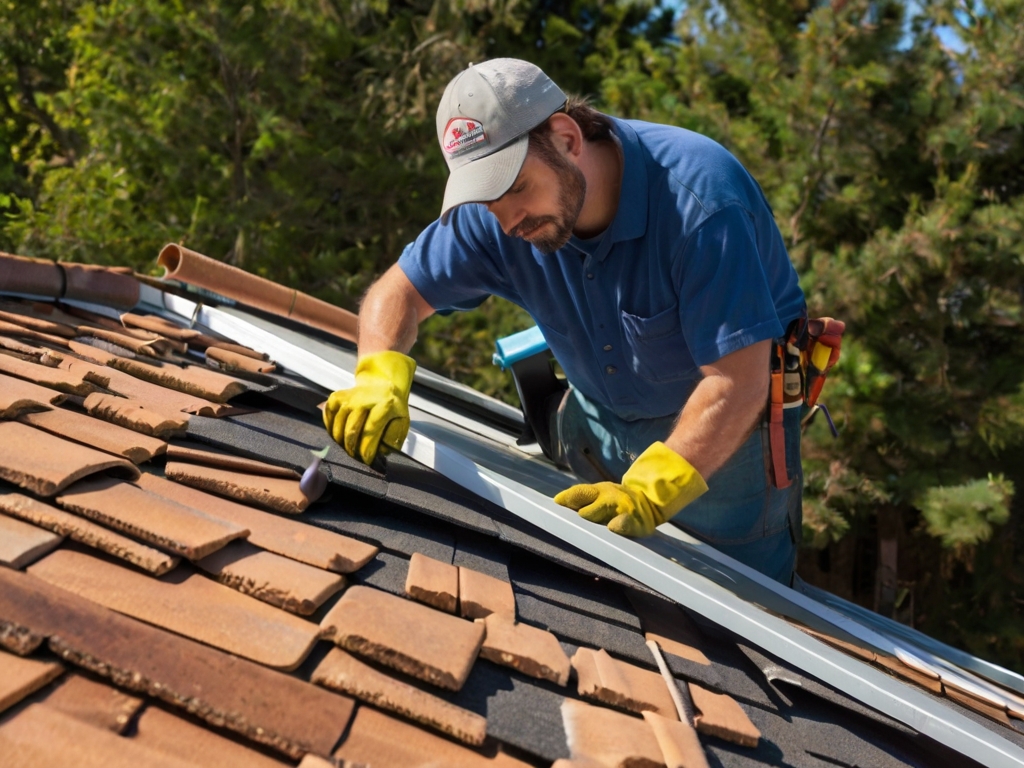Is a Roofer a Skilled Trade? Insights from West Palm Beach, Florida
Is a Roofer a Skilled Trade? Insights from West Palm Beach, Florida
In today’s housing and construction market, roofing plays a pivotal role in both new developments and renovations. Yet, a recurring question emerges: Is a roofer a skilled trade? In the context of West Palm Beach, Florida—a city known for its upscale residential communities, tropical climate, and seasonal storms—the answer becomes not only relevant but essential to understanding the construction industry at large. Let’s dive into why roofing is indeed a skilled trade and what it means for homeowners, aspiring tradespeople, and the local economy in South Florida.

What Defines a Skilled Trade?
A skilled trade is typically a profession requiring specialized training, technical knowledge, and hands-on experience. This can be obtained through apprenticeships, vocational training, or certification programs. It’s not just about labor; it’s about mastering a craft. Fields like plumbing, electrical work, HVAC, and yes—roofing—fall into this category. These trades form the backbone of our built environment.
In the state of Florida, including cities like West Palm Beach, roofers are required to be licensed, undergo formal training, and pass examinations that demonstrate their understanding of building codes, safety standards, and material applications. This underscores the technical proficiency needed to thrive in this field.
Roofing in West Palm Beach: Why It’s Not Just “Hammer and Nails”
With an average of 234 sunny days per year and exposure to tropical storms and hurricanes, West Palm Beach presents a challenging climate for roofs. That means local roofers need to understand how to work with hurricane straps, install waterproof underlayment, and select materials like impact-resistant shingles, metal roofing systems, or modified bitumen for flat roof applications.
A roofing contractor in South Florida must:
- Comprehend the Florida Building Code (FBC) and Miami-Dade County wind uplift requirements.
- Use thermal moisture barriers for insulation efficiency.
- Understand the structural dynamics of homes built with CBS (concrete block structure).
These aren’t just job site tasks—they’re technical requirements that make roofing in this region a highly skilled trade.
Licensing and Certification: The Proof Is in the Permits
In Florida, roofing is not just a profession—it’s a regulated skilled trade. To operate legally in West Palm Beach, roofers must hold a license issued by the Florida Department of Business and Professional Regulation (DBPR). There are two types:
- Certified Roofing Contractor (Statewide License)
- Registered Roofing Contractor (Local Jurisdiction License)
To qualify, applicants must show verifiable experience, submit financial documentation, and pass trade exams. Many also undergo OSHA 10 or OSHA 30 safety certification. This level of regulation affirms roofing’s classification as a trade requiring technical mastery and regulatory compliance.
The Roofing Career Path: Apprenticeships to Master Roofers
Just like electricians or carpenters, roofers can rise through the ranks. In West Palm Beach, apprenticeship programs are often available through unions or trade schools such as Palm Beach State College or South Florida Institute of Technology. These programs combine classroom education with real-world job training.
Journeyman roofers often move on to become foremen, estimators, or even open their own roofing companies—especially in booming local markets like West Palm Beach where residential development and coastal remodeling projects are in constant demand.
Some even pursue the title of Master Roofer, a designation earned through decades of field experience, knowledge of multiple roofing systems, and mentoring of new professionals. The skills acquired throughout a roofer’s career easily place them on the same tier as other trades like welding or plumbing.
Roofing and the West Palm Beach Economy
The construction sector in Palm Beach County is one of the leading employers, and roofing is central to its success. With property values rising and a constant demand for roof replacements due to storm damage, roofers are not only in demand but are also among the highest-paid tradespeople in the region.
A 2024 report by the U.S. Bureau of Labor Statistics noted that roofers in Florida earn an average salary of around $48,000 to $65,000 annually, with skilled and licensed roofers in metro areas like West Palm Beach earning upwards of $75,000, depending on experience and specialization (e.g., tile roofing vs. metal systems).
Additionally, as green construction and energy efficiency become more prioritized, roofers who specialize in solar panel integration, cool roofs, and energy-efficient materials are seeing increased demand.
Salient Skills Every Roofer Must Possess
To solidify the argument that roofing is a skilled trade, it’s essential to understand the multi-faceted nature of the job. Roofing professionals must master:
- Blueprint reading and measurements
- Slope calculation and drainage planning
- Material science (tile, metal, asphalt, composite, rubber)
- Safety compliance and fall protection protocols
- Structural integrity analysis
- Installation of flashing, ventilation, and moisture barriers
In hurricane-prone areas like South Florida, the stakes are even higher. A poorly installed roof doesn’t just leak—it can compromise the entire structure during a storm. That’s why licensed roofing professionals in West Palm Beach are treated as highly skilled tradespeople, not just general laborers.
Local Insight: Roofing Contractors in West Palm Beach
Homeowners in the area know the value of a certified roofing contractor. Whether it’s a luxury estate in Palm Beach Gardens, a townhouse in Lake Worth, or a historic home in Flamingo Park, roofing upgrades must meet local code, be aesthetically aligned with HOA standards, and withstand extreme weather.
Some of the top-rated local roofing companies like Gulfeagle Supply, Kelly Roofing, and All Phase Roofing pride themselves on maintaining high standards, offering storm-proof roofing systems, and ensuring their teams undergo continuous training. Many even provide warranties that span 20 to 30 years, proving confidence in their craftsmanship.
Conclusion: Roofing Is a Skilled Trade—And Vital in West Palm Beach
So, is a roofer a skilled trade? In West Palm Beach, the answer is a resounding yes. Roofing demands more than physical strength—it requires knowledge, precision, regulation compliance, and adaptability to both local climate and market trends.
For residents of Palm Beach County, hiring a licensed, skilled roofer is not a luxury—it’s a necessity. And for those considering a career in construction, roofing offers an avenue of upward mobility, technical growth, and lasting job security.
In a world where skilled trades are finally being recognized for their value, roofing in South Florida stands tall—shingle by shingle, tile by tile.
Roofing is more than a job—it’s a craft. And in West Palm Beach, it’s a skilled trade that protects homes, sustains careers, and builds futures.
